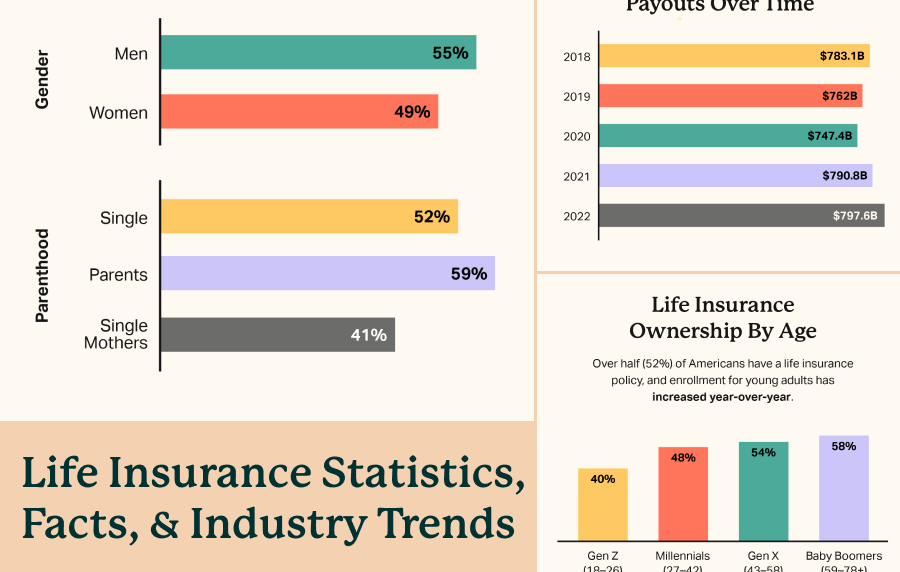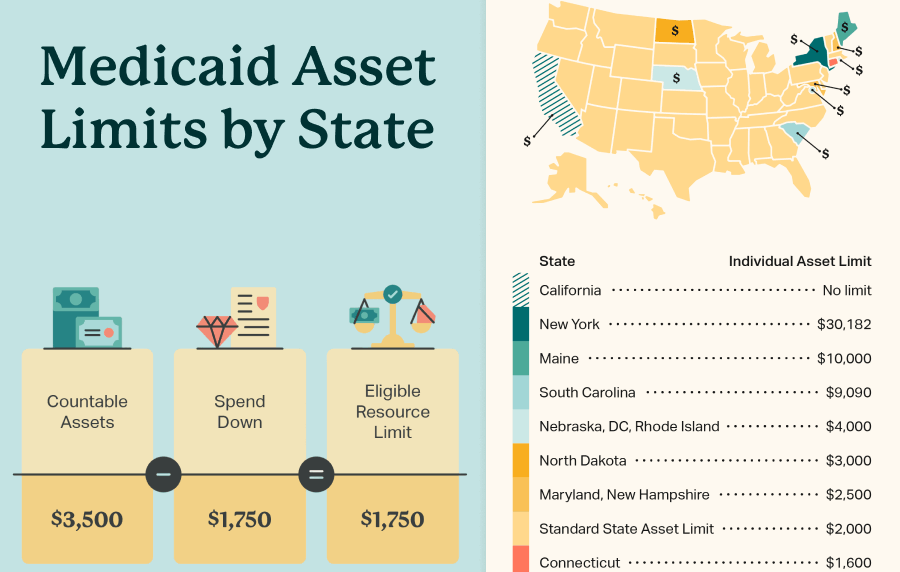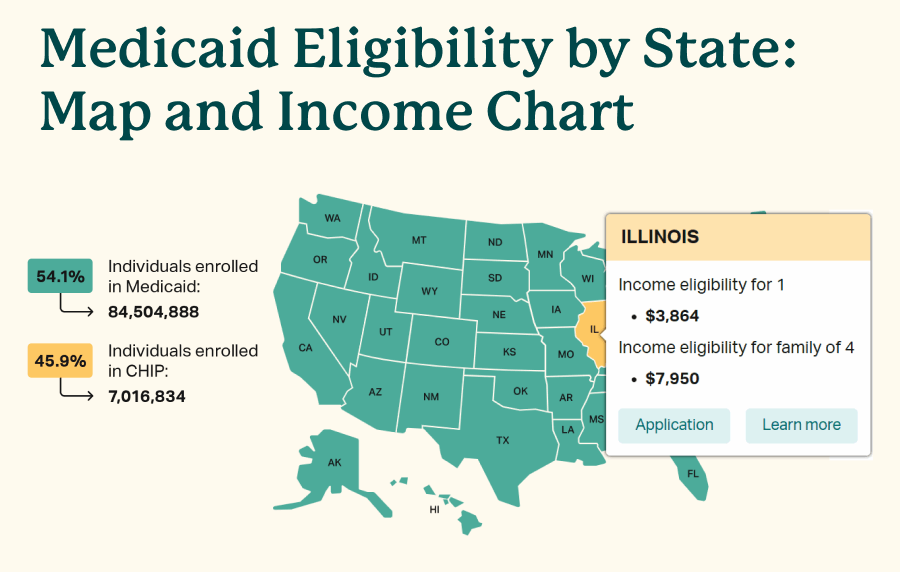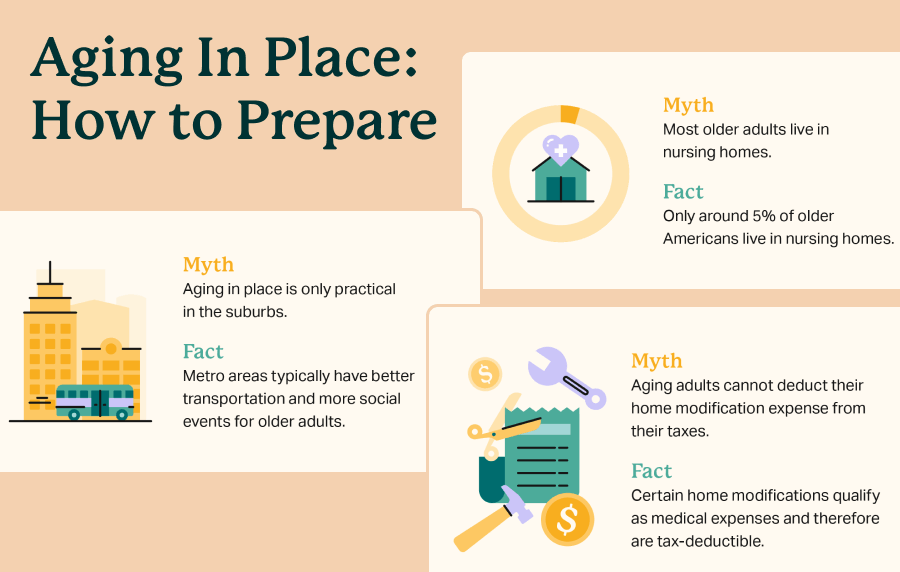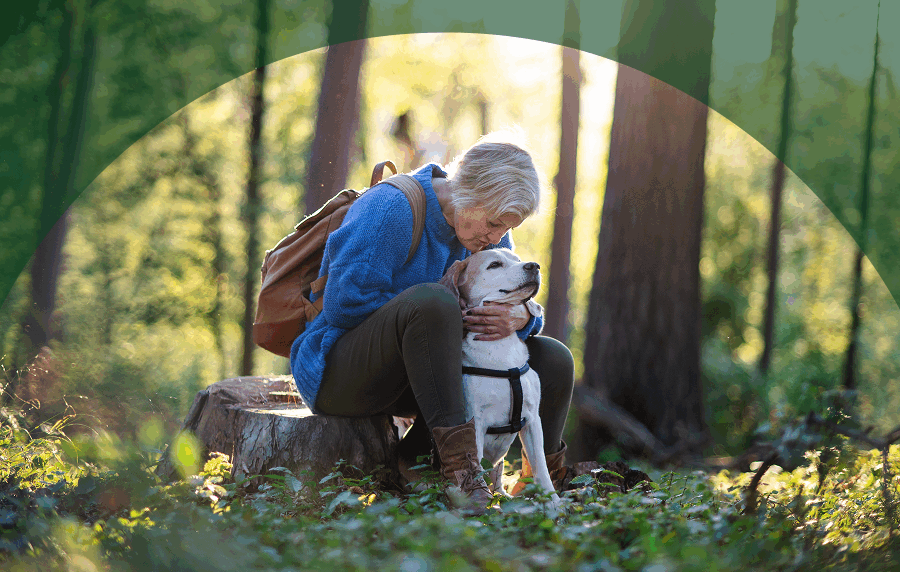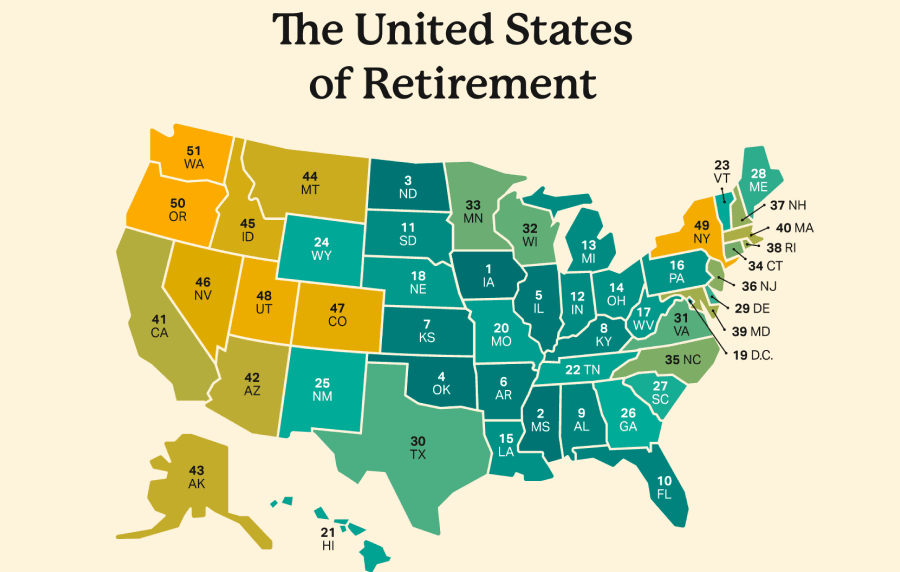This year’s survey explores how technology is reshaping the funeral industry, offering new ways to connect, remember, and preserve legacies. We’ll examine these survey findings, including comparisons to our data from 2020 through 2024, to paint a complete picture of these evolving trends.
2025 Burial Preferences: The Intersection of Grief and Tech
Our 2025 survey uncovers new trends in how Americans envision their final farewells and the preservation of their legacies.
From embracing digital memorials to expressing reservations about artificial intelligence in remembrance, the data reveals a nuanced relationship with technology in this deeply personal sphere.
Digital memorials on the rise by 39%
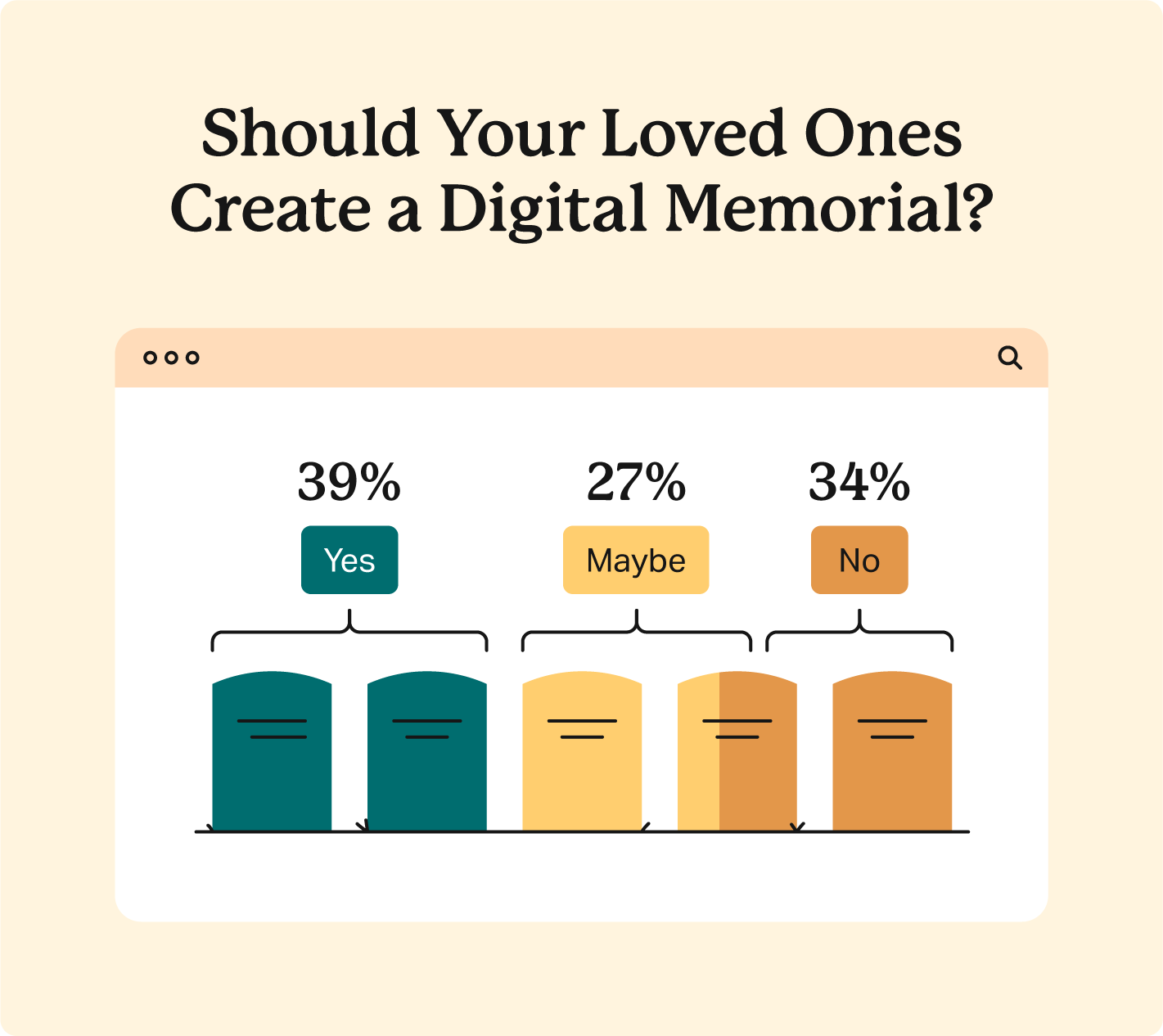
Almost two out of five Americans are interested in creating or having loved ones create a digital memorial page. This indicates a growing acceptance of online platforms as a means of remembrance, potentially including features like virtual guestbooks, shared memories, and online tributes accessible to a wider network of family and friends.
This embrace of digital tools suggests a desire to extend the reach and longevity of memorialization beyond traditional physical formats.
45% embrace virtual memorial attendance
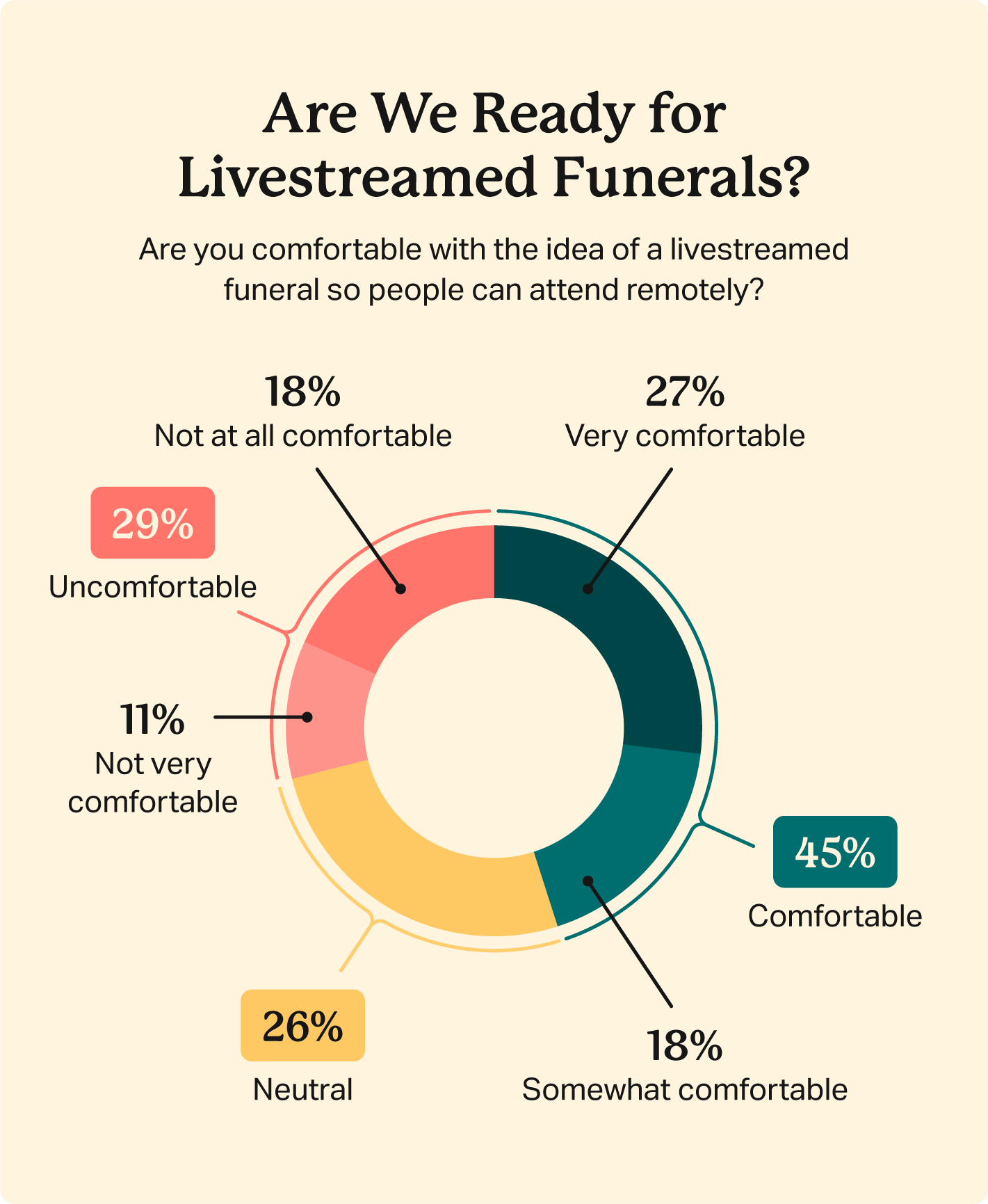
While in-person gatherings remain a cornerstone of funeral traditions, almost half of our respondents are open to virtual participation.
Forty-five percent indicate they are either very or somewhat comfortable with the idea of a livestreamed funeral, which allows those who can’t physically attend to still be part of the service.
This openness to virtual attendance highlights a shift toward integrating technology into even the most emotional and traditionally offline life events. In fact, livestreaming is already common in weddings and graduations, and is increasingly being adopted for funerals.
A 2021 study from the National Center for Biotechnology Information noted a surge in virtual funerals during the pandemic, which normalized remote grieving.
“The COVID-19 pandemic has fundamentally changed funeral practices on a global scale.” -National Center for Biotechnology Information
As technology becomes more embedded in our emotional rituals, its role in helping families stay connected, even in moments of loss, is only expected to grow.
73% value a lasting digital legacy
Americans also show a strong desire for their memories to endure. A majority (73%) feel it’s at least somewhat important that future generations can easily access and learn about their life and memories.
And over 40% like the idea of a “digital time capsule” containing photos, videos, and messages to be opened by loved ones down the line.
These findings highlight a desire to transcend the limitations of traditional remembrance and ensure their stories continue to resonate with those who come after.
65% wary about incorporating AI into their funeral
Despite the increasing integration of artificial intelligence (AI) technology in other areas of life, many Americans express caution regarding its role in their own or their loved ones’ funerals.
When asked if they would consider using technology like AI or video messages to leave a lasting message, 65% answered “no” or “maybe.” Similarly, 47% don’t like the idea of an AI-generated video, slideshow, or written tribute at their funeral.
It’s clear that Americans have some reservations about the impersonality of AI in such sensitive moments. Our results reveal a prevailing preference for human-centered approaches to remembrance.
Comparing Preferences Since 2020
Examining our annual Funeral Preferences Surveys since 2020 reveals both enduring trends and subtle shifts in how Americans approach end-of-life arrangements.
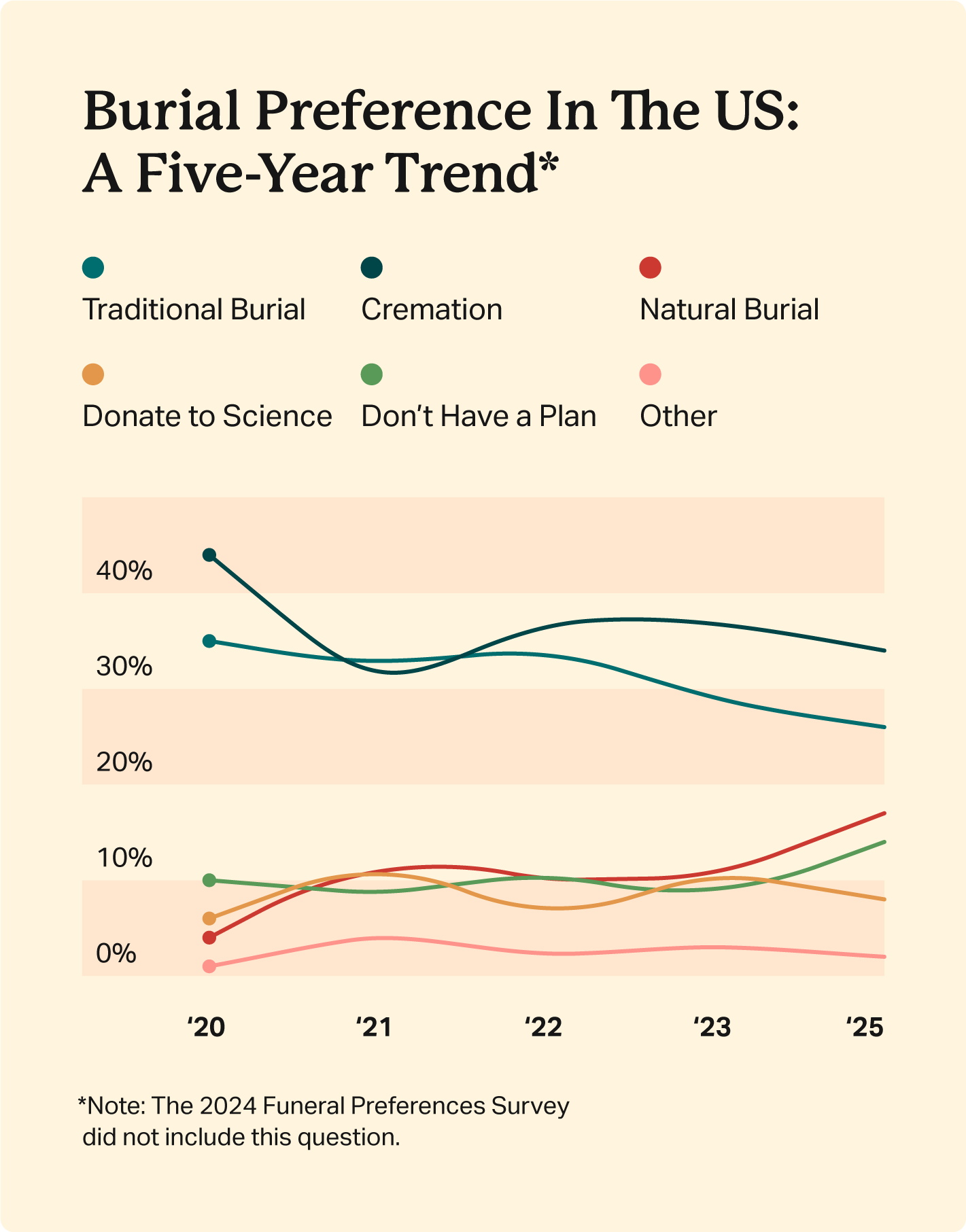
The type of funerals preferred most
| Type of Final Disposition* | 2025 | 2023 | 2022 | 2021 | 2020 |
|---|---|---|---|---|---|
| Traditional Burial | 26% | 29% | 34% | 33% | 35% |
| Cremation | 34% | 37% | 37% | 32% | 44% |
| Natural Burial | 16% | 11% | 10% | 11% | 4% |
| Donate to Science | 8% | 10% | 7% | 11% | 6% |
| Don’t Have a Plan/Don’t Care | 14% | 9% | 10% | 9% | 10% |
| Other | 2% | 3% | 2% | 4% | 1% |
The continued preference for cremation remains a key trend. In our 2025 survey, 34% indicated cremation as their preferred type of funeral.
Although cremation has consistently outpaced traditional burial as the preferred method, the 2025 findings represent a 10 percentage-point drop since 2020.
Interest in natural burial options also continues to rise, up five percentage points from 2023 and up 12 percentage points from 2020, to reach 16% in 2025.
Anticipated costs and coverage
Cost also remains a significant factor in funeral planning. In 2025, almost one in three (32%) people expect funeral expenses to be under $5,000. But that figure is over $3,000 below the current average cost of a funeral.
This disconnect between expectation and reality may make families more vulnerable to financial stress. Fortunately, technology offers tools that can help bridge this gap.
From digital funeral planning platforms to cost-comparison sites and online policy calculators, tech can empower consumers to make more informed and budget-conscious decisions.
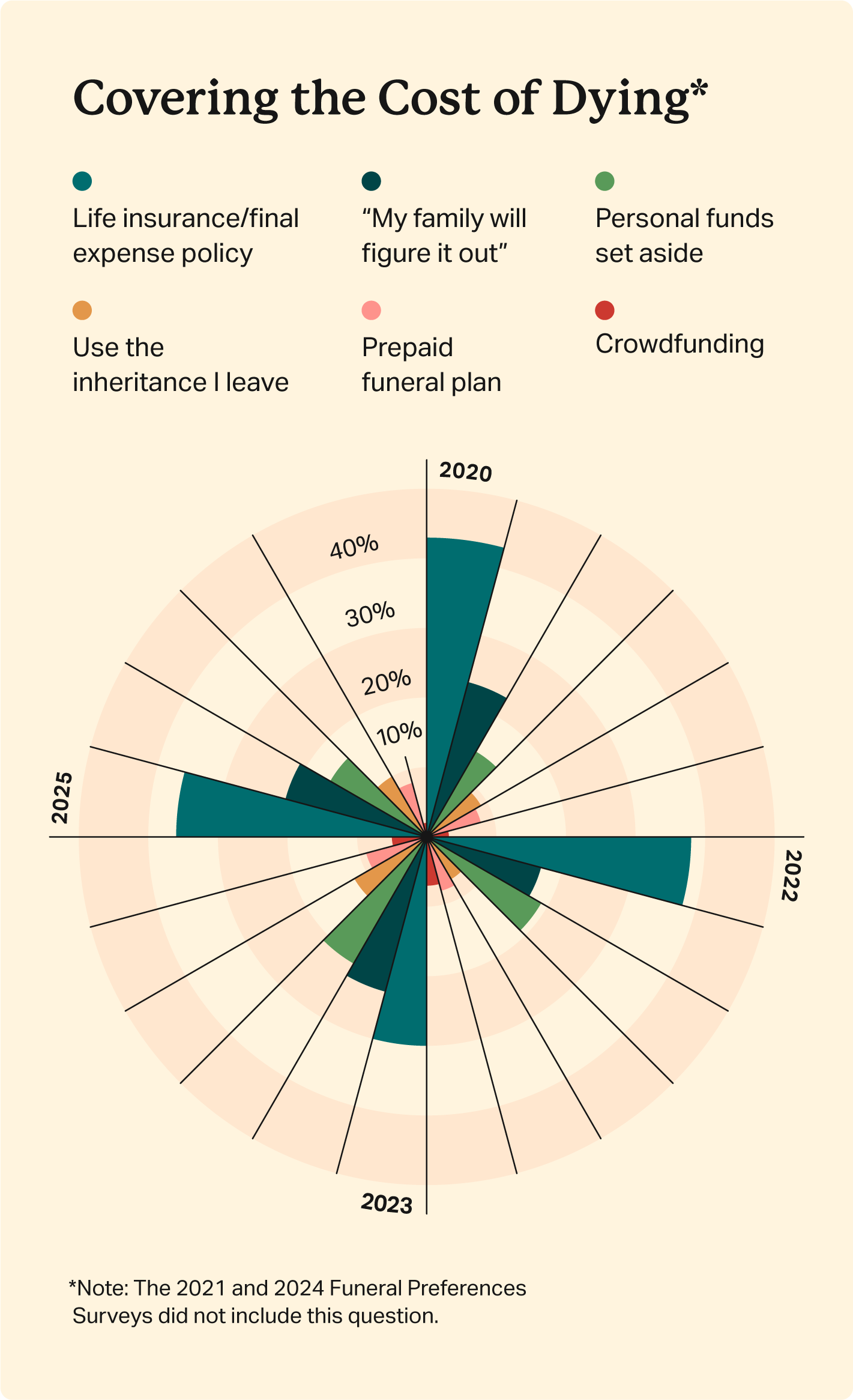
Looking at how Americans intend to cover their funeral costs reveals interesting trends. Life insurance or final expense policies remain the most cited method, with 36% planning on that option in 2025.
While it has consistently been the preferred choice, the prevalence has seen some fluctuation, down from a high of 43% in our 2020 survey. Other methods show varying levels of adoption:
- “My family will figure it out”: After a dip in 2022, this response remains popular among over 20% in 2025
- Personal funds set aside: Remained relatively stable since a low of 14% in 2020, now hovering around the high teens
- Prepaid funeral plan: Showed consistency, with roughly 8-9% opting for this approach across the surveyed years
- Crowdfunding: Peaked in 2022 at 7% before dropping to 2% in 2025
Communicating funeral plans in advance
Another crucial aspect of funeral planning is communication with loved ones. Encouragingly, over half of respondents in both 2025 (56%) and 2022 (57%) report that their family is aware of their burial or funeral plans.
However, a significant portion still haven’t had these important conversations. In 2025, 27% say their loved ones are unaware of their plans, compared to 29% saying the same back in 2022.
This persistent gap between planning and communication highlights an ongoing need for families to engage in these important conversations, even as new technologies offer additional avenues for remembrance.
The emergence of digital preferences adds a new layer to these discussions, suggesting that future conversations will likely encompass both traditional wishes and digital legacies.
Why It Matters
Deciding how you want to be remembered and how you want your remains handled aren’t just logistical decisions. They involve deep emotions and often considerable financial implications for families facing loss.
By keeping a pulse on these preferences, especially the growing interest in technology’s role, we can offer helpful information for anyone planning for the future and for the funeral industry as it evolves.
As digital tools shape how we remember and create lasting legacies, knowing where the public stands — what feels comforting vs. what feels intrusive — is essential.
Our annual survey sheds light on the balance between embracing new possibilities and honoring deeply held personal values when saying goodbye to and remembering those we’ve lost.
Navigating The Future Of Farewell With Choice Mutual
Our 2025 survey reveals how American funeral preferences now blend tradition and technology — digital memorials are gaining traction, yet many remain cautious about incorporating AI in their tributes.
The findings highlight the value of preplanning your funeral and discussing your wishes with loved ones, ensuring both traditional and digital aspects of your legacy are honored.
Choice Mutual offers resources to help you navigate these important decisions. Whether you’re considering traditional burial insurance, looking into final expense policies, or simply want to understand your options, we provide straightforward guidance.
Take the first step toward peace of mind for yourself and your family. Explore our resources and begin planning your preferences today at Choice Mutual.
Methodology
The survey was conducted by SurveyMonkey Audience for Choice Mutual. The survey was fielded between May 22, 2025 through May 23, 2025. The results are based on 1,563 completed surveys. In order to qualify, respondents were screened to be residents of the United States and over 18 years of age.
Data is unweighted, and the margin of error is approximately +/-3% for the overall sample with a 95% confidence level.
- Nationally licensed life insurance agent with over 16 years of experience
- Personal annual production that puts him in the top .001% out of all life insurance agents in the nation.
Anthony Martin is a nationally licensed insurance expert with over 16 years of experience and has personally served over 10,000 clients with their life insurance needs. He frequently authors entrepreneurial and life insurance content for Forbes, Inc.com, Newsweek, Kiplinger, and Entreprenuer.com. Anthony has been consulted as an expert life insurance source for dozens of high-profile websites such as Forbes, Bankrate, Reuters, Fox Business, CNBC, Investopedia, Insurance.com, Yahoo Finance, and many more.
Choice Mutual often cites third-party websites to provide context and verification for specific claims made in our work. We only link to authoritative websites that provide accurate information. You can learn more about our editorial standards, which guide our mission of delivering factual and impartial content.
-
2021 study. https://pmc.ncbi.nlm.nih.gov/articles/PMC10647914/
-
SurveyMonkey Audience. https://www.surveymonkey.com/market-research/solutions/audience-panel/

